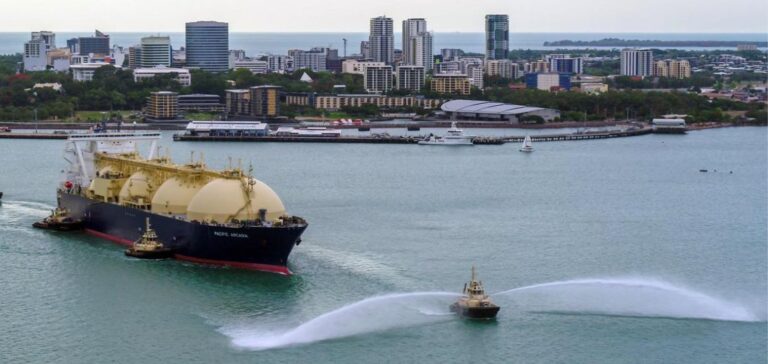Regulatory reforms in Australia impact Ichthys LNG’s costs. Abadi LNG’s schedules will be adjusted accordingly. These changes reflect significant challenges in energy projects.
Ichthys LNG costs rise following Australian reforms, Abadi LNG revises schedules
On August 9, the CEO of INPEX in Japan admitted that Ichthys LNG’s costs would rise as a result of the Australian reforms. This follows recent changes in the project’s ownership structure. Ichthys LNG has a capacity of 8.9 million tonnes/year and has been operated by INPEX since 2018. The group will acquire Australian Carbon Reduction Units (ACCUs). This will compensate for emissions in excess of the regulatory baseline. This measure will be in place until carbon capture and storage is operational in the late 2020s. Following the reforms to the Safeguard Mechanism that came into force on July 1, industrial facilities emitting more than 100,000 tonnes of CO2 equivalent per year must offset their CO2 emissions by purchasing carbon credits or using carbon capture and storage. The plants concerned must reduce their net emissions by 4.9% per year until 2030.
Focus on emissions reductions
Faced with these new regulations, INPEX is required by law to reduce CO2 emissions by 4.9% each year. The company intends to respond to this by using carbon capture and storage (CCS), although the introduction of this technology is not expected before the late 2020s. Actual CO2 injections for CCS will begin around 2029. As a result, INPEX will have to purchase Australian carbon credits for emissions in excess of the regulatory limit. Japanese buyers of Australian LNG have also expressed concern about the impact of these reforms on their business and import costs.
“Following improved regulations by the Australian government, Ichthys would also be required to reduce its CO2 emissions by 4.9% each year, as determined by law,” said Ueda, adding that the company intends to respond using carbon capture and storage (CCS).
“However, CCS cannot be implemented today, nor tomorrow, no matter how hard we try to introduce it as quickly as possible,” he said. “Despite our efforts, actual CO2 injections for CCS would not begin until the late 2020s, around 2029.”
“This means we would have to buy Australian carbon credits for CO2 emissions above the regulatory limit,” he added.
Impact on Ichthys and Abadi
Indeed, the Ichthys project’s costs and schedules could be impacted :
Asked about the longer-term impact on a possible expansion at Ichthys, Ueda noted some uncertainty about the price exposure of Australian Carbon Reduction Units (ACCUs), but said it would “deteriorate the economy somewhat”.
The extent of the impact would depend on the future cost of ACCUs, as well as the volumes to be purchased. “We are in the process of closely monitoring the resulting situations and assessing their impact,” he said.
The precise impact on costs will depend on the future price of ACCUs and the volumes to be purchased. With regard to the Abadi LNG project in Indonesia, recently taken over by Pertamina and Petronas, INPEX plans to review the timetable in collaboration with the new partners. The Ichthys project was disrupted by offshore production problems in the second quarter. These unforeseen events reduced sales volumes by almost 5%. INPEX is working to make up for these sales by deferring scheduled maintenance:
“As far as Abadi is concerned, we hope to be able to sell clean LNG from the first day of production by installing CCS,” said Ueda. “We also have a basic agreement on the steps to be taken for CSC with Abadi from the Indonesian government,” he said, adding that the company is still working with the Indonesian government to revise the Development Plan (POD).
Revision of schedules and outlook
INPEX is therefore aiming for a final investment decision for Abadi LNG in the late 2020s. Production would thus begin in the 2030s. The project, operated by INPEX with a 65% stake, is expected to produce around 9.5 million tonnes of LNG per year and up to 35,000 barrels per day of condensate.
“Keeping in mind our previous schedules, we hope to review the schedules once again by holding various discussions with new partners,” said Ueda.






















